The following opportunities have been announced. Please follow the links for more information:
UK Funding:
The AHRC and the British Library have announced a call for collaborative proposals to explore the Academic Book of the Future in the context of open access publishing and the digital revolution with one award of £360,000. Closing date: 27/03/14
The AHRC Follow-on Funding for Impact and Engagement Scheme (FoF) provides funds to support innovative and creative engagements with new audiences and user communities which stimulate pathways to impact. Large awards of up to £100,000 are avialble and £30,000 for smaller projects. There is no closing date.
There is an open call for the BBSRC‘s follow-on Pathfinder scheme. This enables potential follow-on funding applicants to secure small amounts of funding to carry out preliminary commercial activities. Funding between £7,000 and £10,000 for six months is available.
The BBSRC’s Doctoral Training Partners provides PhD training in research areas relevant to our remit and strategic priority areas. They also provide a breadth of professional development training opportunities to enhance students’ capability and develop the world-class, highly skilled workforce the UK needs for its future. Closing date: 01/05/14
The BBSRC, in coll aboration with the National Institute of Food and Agriculture (NIFA), U.S. Department of Agriculture (USDA) have announced a joint call for collaborative projects in Animal Health & Disease and Veterinary Immune Reagents involving researchers from the US and UK. Clsoing date: 27/02/14
aboration with the National Institute of Food and Agriculture (NIFA), U.S. Department of Agriculture (USDA) have announced a joint call for collaborative projects in Animal Health & Disease and Veterinary Immune Reagents involving researchers from the US and UK. Clsoing date: 27/02/14
The British Academy, the UK’s national academy for the humanities and social sciences, is currently inviting outstanding proposals for our 2015 conference programme. Proposals for conferences that will be pivotal events and of lasting significance in the field: a chance for leading and emerging scholars to examine current and future issues surrounding novel, dynamic, innovative and exciting subject areas in the humanities and social sciences are invited. Closing date 21/02/14
DFID and ESRC are continuing their strategic partnership with a dedicated research programme on ‘Education and development: Raising learning outcomes in education systems’. The ultimate aim is to provide policymakers and practitioners with concrete ideas on how to improve learning and understanding of how these will translate to their specific contexts and institutions, enabling more effective policies and interventions. Closing date: 25/03/14
The DoH and NIHR are requesting submissions relating to Self-harm and suicidal behaviours. Closing date: 03/06/14
The EPSRC ICT team would like to encourage researchers to pursue an immersive experience in other disciplines and user environments. Discipline Hopping Awards will provide short-term support to allow researchers from core ICT fields with other disciplines and/or user fields. The aim of this is to foster new interactions, bringing a multidisciplinary and user-driven focus to research. Alternatively, non ICT specialists can apply for funds to bring a technological perspective to their home discipline. No closing date has been given.
The EPSRC is supporting eFuturesXD travel awards of up to £5,000 (100% fEC) to allow researchers from one ICT discipline a chance to spend a short time in a different institute or for two researchers to spend time in each other’s institutions (UK only). The same scheme is supporting facility awards, of up to £20,000, to use expensive characterisation facilities such as microscopy, fabrication of novel structures using clean rooms or manufacture of test chips using Europractice. There is also a staff award aimed principally at small teams of researchers from two or more disciplines who wish to carry out key experiments or measurements to confirm an initial hypothesis. This award is up to £60,000. Lastly, the meeting award provides up to £10,000 to facilitate the building of larger research consortia comprising researchers from a number of departments and institutions across the ICT portfolio. There are no specific closing dates.
The EPSRC Centre for Innovative Manufacturing in Medical Devices has a call for Feasibility Studies. The Centre is looking to fund research at Technology Readiness Levels from 1 to 3 that will aid the fundamental understanding and development of innovation in medical device manufacturing. The maximum award is £50,000.Closing date 28/03/14
The EPSRC, as part of Research Councils UK (RCUK) Energy Programme, in collaboration with the TSB, invites Expressions of Interest (EOI) from those wishing to bid under a new research initiative in low-carbon vehicle technologies and fuel infrastructure for road transport. Closing date 14/02/14
The EPSRC invites applications to support networks of researchers looking at Forecasting Environmental Change. The budget is up to £2 Million for this activity and anticipates funding up to four networks, which can include support for feasibility projects, for three years in the identified challenge areas. Closing date 16/04/14
The HEA and AHRC invite all HEA subscribing institutions in the UK to be part of the 2014 Symposia on Interculturalism and Translating Cultures. Applications must be submitted by 17/02/14
NERC have a consortium call, Unlocking the Potential for Groundwater for the Poor(UPGro). This £12m programme is an international programme funding interdisciplinary research, generating evidence and innovative tools to enable developing countries and their partners in sub-Saharan Africa to use groundwater in a sustainable way for the ultimate benefit of the poor. Closing date: 03/03/14
The Institute of Physics and Engineering are promoting their various annual prizes. For details of each prize and conditions, please see the IPEM webpage.
The Royal Society and the British Academy support the Newton International Fellowship. This scheme is for non-UK scientists who are at an early stage of their research career and wish to conduct research in the UK.The scheme provides the opportunity for the best early stage post-doctoral researchers from all over the world to work at UK research institutions for a period of two years. The scheme covers the broad range of the natural and social sciences and the humanities. Up to £126,000 will be awarded. Closing date: 10/03/14
The
Royal Society Wolfson Research Merit Award is for outstanding scientists who would benefit from a five year salary enhancement to help recruit them to or retain them in the UK. The scheme provides universities with additional support to enable them to recruit or retain respected scientists of outstanding achievement and potential to the UK. It provides a salary enhancement which is paid by the university in addition to the basic salary. The scheme covers all areas of the life and physical sciences, including engineering, but excluding clinical medicine. Closing date: 04/03/14
The TSB and BBSRC are supporting the Agri-Tech Catalyst which offers funding to innovative businesses and researchers to develop solutions to global agricultural challenges. You must register by 04/06/14 and the closing date is 11/06/14.
Through the TSB, the Electric Days Out scheme seeks to encourage the uptake of and awareness around electric vehicles within Northern Ireland. Both NITB and NIEA wish to see an increase in the number of visits to their various locations throughout Northern Ireland through sustainable transport means. A briefing event is planned for 07/02/14. Applications must be submitted by 28/02/14
Through the
TSB,
Cardiff Council, with support from
Welsh Government,
TSB,
Cadw and
Low Carbon Research Institute, is offering funding packa

ges totalling up to £450k to develop innovative measures that will improve the
energy performance of traditional and historic buildings. Closing date: 28/02/14
The
TSB,
BBSRC and
EPSRC are providing investment of up to £45m in major integrated research and development projects through the
Industrial Biotechnology Catalyst Scheme. The programme will accelerate commercialisation by supporting the development of new industrial biotechnology products and processes, and enabling their potential scale-up. It will support R&D for the processing and production of materials, chemicals and bioenergy through the sustainable exploitation of biological resources. A launch event will be held in London on 03/02/14
(also available as a webinar) and a second briefing event will be held in York on 12/02/14. Register by 07/05/14 and submit by 14/05/14
IC tomorrow, via the
TSB, is offering nine businesses up to £25k each to encourage
digital cross-sector exploration across three broad themes: retail, events and analytics. This call closes on 26/02/14
The
TSB the
EPSRC are to invest up to £11m in a programme of collaborative research and development to stimulate innovation in
localised energy systems. Up to £9.5m is available from the Technology Strategy Board and up to a further £1.5m is available from EPSRC to support academic partners contributing specifically to the energy sector aspects of projects. The deadline for registration is at noon on 12/03/14 and the deadline for expressions of interest is at noon on 19/03/014. A briefing event for potential applicants will be held in Bristol on 30/01/14
The
TSB and the
EPSRC are to invest up to £8.5m in collaborative R&D projects to develop advanced materials and manufacturing technologies which deliver lighter, better-performing and more material-efficient structures and products across a broad range of industrial sectors and global markets in their
Making it Lighter, with Less call. The competition opens for applicants on 03/03/14 and the deadline for expressions of interest is at noon on 16/04/14. A briefing event for potential applicants will be held in London on 05/03/14
The
Wellcome Trust, through its
Seeding Drug Discovery funding, is facilitating early-stage small-molecule drug discovery. This call closes on 11/06/14
Education and Neuroscience is a new £6 million funding scheme, launched by the Wellcome Trust and the Education Endowment Foundation (EEF) in January 2014. This one-off scheme aims to develop, evaluate and communicate the impact of education interventions grounded in neuroscience research. Successful proposals will build on the existing evidence about effective teaching and learning practices, and explain how these practices could be made more effective or efficient using evidence from neuroscience. Closing date: 06/05/14
Outside the UK:
Please note that some funders specify a time for submission as well as a date. Please confirm this with your RKE Support Officer.
You can set up your own personalised alerts on ResearchProfessional. If you need help setting these up, just ask your School’s RKE Officer in RKE Operations or see the recent post on this topic.
 16:00 on 13/05/14.
16:00 on 13/05/14.


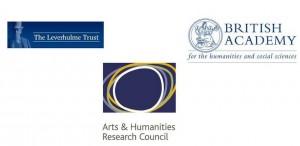

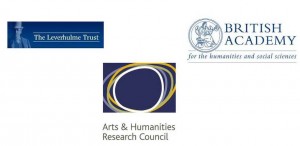

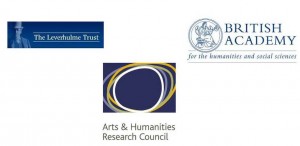




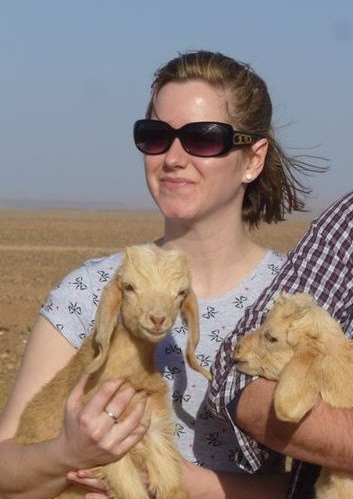
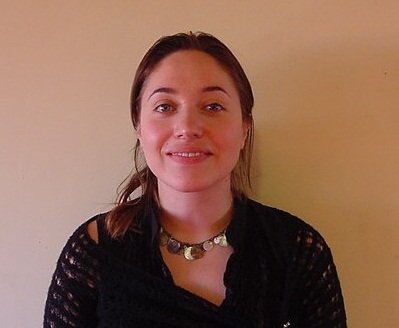
















 Beyond Academia: Exploring Career Options for Early Career Researchers – Online Workshop
Beyond Academia: Exploring Career Options for Early Career Researchers – Online Workshop UKCGE Recognised Research Supervision Programme: Deadline Approaching
UKCGE Recognised Research Supervision Programme: Deadline Approaching SPROUT: From Sustainable Research to Sustainable Research Lives
SPROUT: From Sustainable Research to Sustainable Research Lives BRIAN upgrade and new look
BRIAN upgrade and new look Seeing the fruits of your labour in Bangladesh
Seeing the fruits of your labour in Bangladesh ECR Funding Open Call: Research Culture & Community Grant – Apply now
ECR Funding Open Call: Research Culture & Community Grant – Apply now ECR Funding Open Call: Research Culture & Community Grant – Application Deadline Friday 12 December
ECR Funding Open Call: Research Culture & Community Grant – Application Deadline Friday 12 December MSCA Postdoctoral Fellowships 2025 Call
MSCA Postdoctoral Fellowships 2025 Call ERC Advanced Grant 2025 Webinar
ERC Advanced Grant 2025 Webinar Update on UKRO services
Update on UKRO services European research project exploring use of ‘virtual twins’ to better manage metabolic associated fatty liver disease
European research project exploring use of ‘virtual twins’ to better manage metabolic associated fatty liver disease